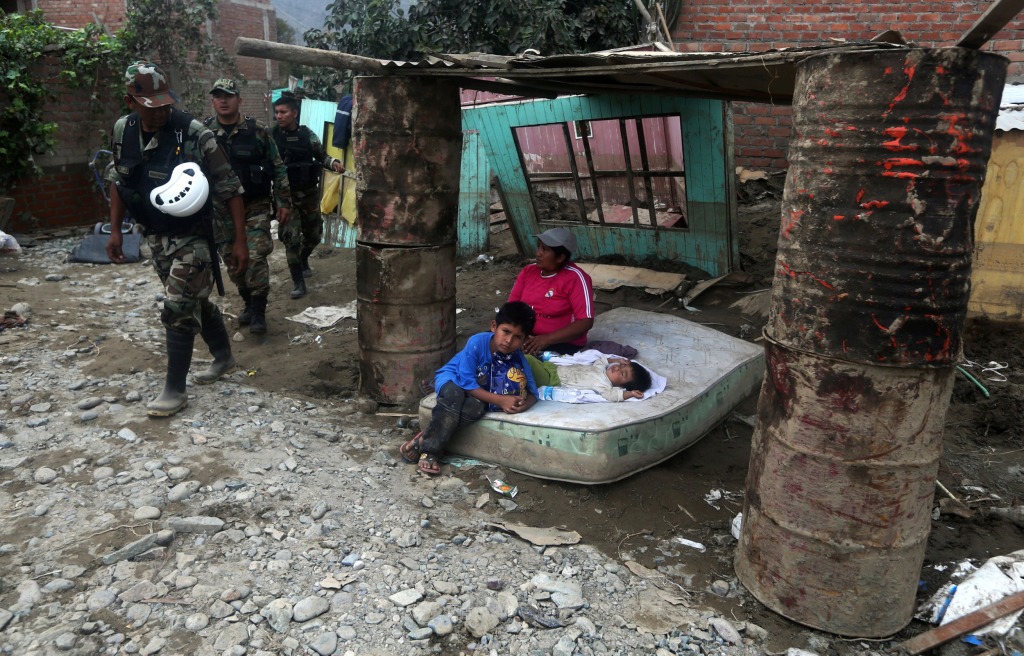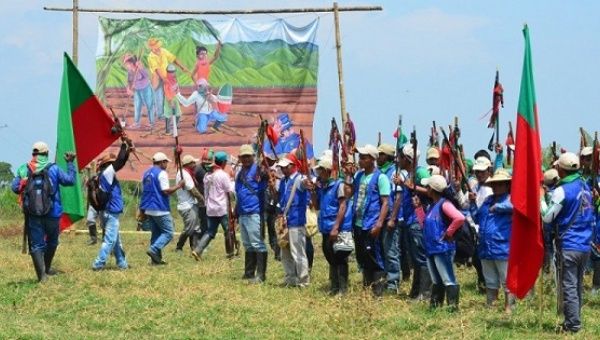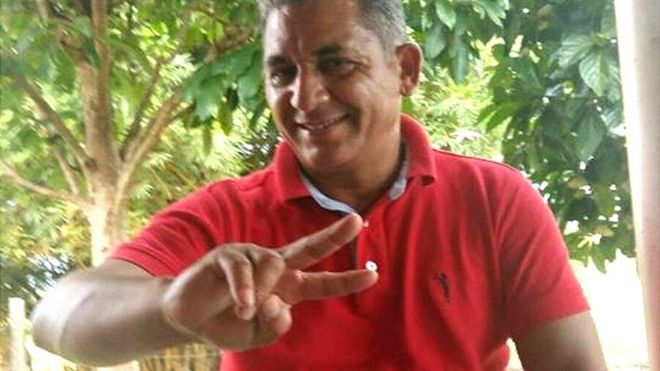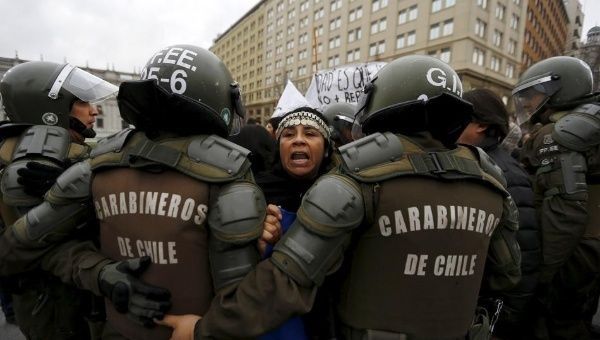By Cintia Garcia
Impunity Watch Reporter, South America
Caracas, Venezuela—Thousands of Venezuela’s opposition members and supporters took to the streets of Caracas on Thursday afternoon in protest against the current government. Demonstrators were met by security forces which turned violent.
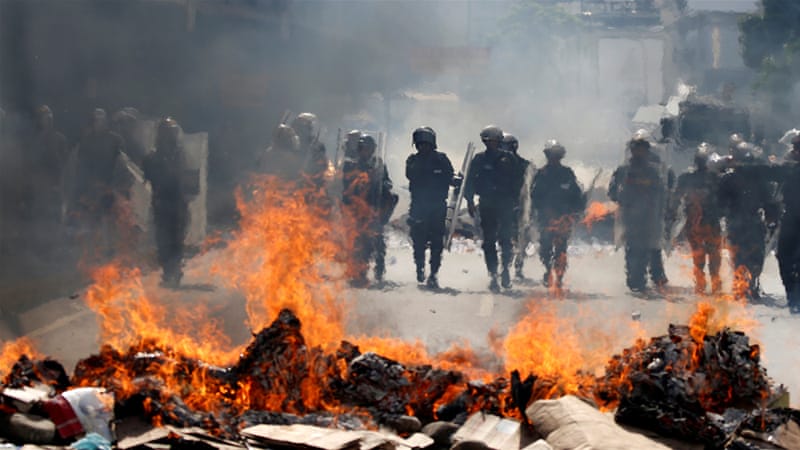
The protesters were disbanded by tear gas and water hoses, turning the highways of Caracas into a violent scene. No immediate reports of arrest or injuries. The demonstration has been sparked by the outrage against the Supreme Court’s decision to nullify congress. Protesters viewed the action by the Supreme Court as the current governments attempt to seize power from the legislative house. The decision by the Supreme Court was overturned. Currently, the legislative house is ruled by the opposition. Furthermore, opposition members are demanding the removal of the seven justices that signed the decision. Many of the protesters carried signs reading “No to Dictatorship.” Demonstrations have taken place this past week, including on Tuesday when twenty people were injured and eighteen were arrested. There is another nation wide protest scheduled.
Venezuela has been enduring severe food and medicine shortages, growing inflation and one of the highest murder rates. Citizens are angry at the lack of basic needs, such as Maria Auxiliadora Soler who has been searching for blood-pressure medicine, “Now I just have a couple of them. I count them every day, and it feels like counting the days I have left to live.”
Maduro’s government blames U.S. government elites for the economic and political crisis in Venezuela. Government officials also claim that the opposition is attempting a coup plot. Diosdado Cabello, a socialist law maker and vice president of Maduro’s United Socialist Party of Venezuela (PSUV) stated, “We are not going to surrender and they will never step on Miraflores again, because anyone who betrays his homeland and is imploring an invasion of foreign forces must be treated as an enemy in his homeland, as a traitor to his homeland.”
For more information, please see:
Al Jazeera—Protesters Clash with Security Forces in Caracas—6 April 2017.
Reuters—Venezuelan Opposition, Security Forces Clash in Anti-Maduro Protests—6 April 2017.
Telesur—Venezuela Right-Wing Opposition Plans Violent Attacks: Lawmaker—6 April 2017.
Washington Post—Protestors Clash With Government Forces in Venezuela—6 April 2017.
